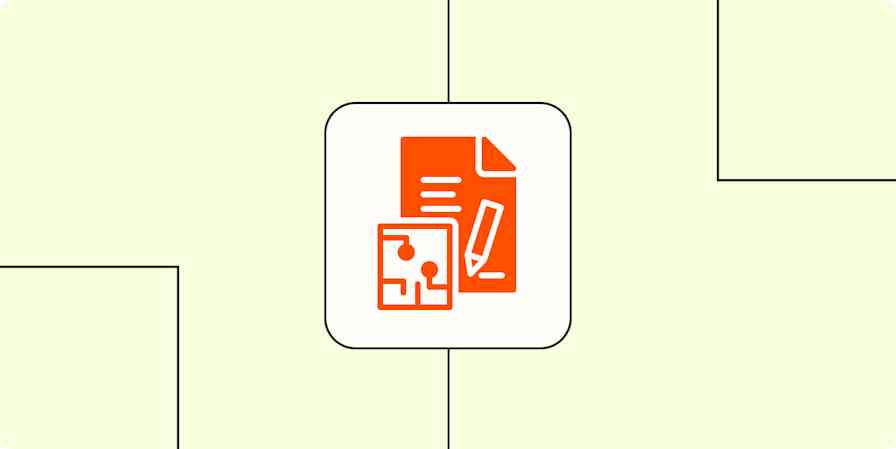Your work is going to fill a large part of your life, and the only way to be truly satisfied is to do what you believe is great work. And the only way to do great work is to love what you do.
Steve Jobs
There's a deep desire to own your own destiny—and starting your own business is one of the most obvious ways to do that. Your business can be anything, do anything, make and break its own rules. It's your chance to make your mark on the world.
Starting a business might seem intimidating, though, especially if you're planning on ditching your day job to pursue your passion. But every minute, at least one person starts a new business, joining 28 million current small business owners and sole proprietors—and that's only in the US. You can too, and it doesn't have to be that hard.
Thanks to a plethora of eCommerce apps today (which we'll explore in-depth in Chapter 5), it's easier than ever to start your own business right from home. We're not saying this is going to be a breeze, though. There are lots of things you'll need to decide before you launch, not the least of which is: How viable is your business idea? And, once you're set up, running your "shop" will definitely be more challenging than being an employee. For many people, however, the satisfaction of being your own boss and making your own opportunities are worth it.
Knowing how to start is perhaps the biggest hurdle. The questions below will help you make the necessary, big decisions about your business and prepare properly for its long-term success. Got your entrepreneurial hat on? Let's dive in.
1. Do You Really Want to Run Your Own Business?

Forging your own path and striking it rich with your business idea---it's part of the American Dream. When you're a freelancer or a small business owner, you get to decide your working hours and environment, avoid office politics, choose what to work on, and, hopefully, make more money and keep more of what you make. With all those benefits, however, come several challenges that you'll need to keep in mind before starting your business.
You'll Need to Be a Jack-of-All-Trades
Successful business require more than just great products. They also require people to fill a lot of roles, including:
Marketing: Finding and getting in front of qualified prospects
Selling: Interacting with those prospects to turn them into customers
Production: Creating what you're selling
Support: Maintaining your customer relationships and the things you're producing
Operations: Administrative things such as billing and filing paperwork
When you're an employee, you are only focused on your role. Others take care of everything else. When you're running your own business, all of that is on you.
It's important to review your weaknesses in these areas before you start your business, and find ways to overcome them. You could have the best products or services in the world, but without marketing them to people who'd be interested in them, the business will flop. If you're not disciplined with invoicing and following up with customers, you won't get paid. And if you miss a tax filing deadline, you can count on being penalized for it.
You could outsource or hire people for any of these roles you aren't great at or interested in doing, but when you're just starting out, you might not have the funds to do that. So prepare to wear many hats, spending time doing things that might not be core to what you're producing but are still essential for your company. You'll have a better chance of success if you're comfortable doing everything your business requires--or trying to at least. And once you are able to hire or outsource for other roles, you'll need management skills to bring out the best in your team.
You'll Have to Be Your Own Boss
Working for yourself might seem like a benefit, but it's a double-edged sword. You could be your worst boss. Just as working remotely for a company takes discipline, staying productive when you're the boss can be even more challenging. Watch out for the common problems of procrastination, not knowing where to start with a project, and lack of motivation.
Your Income Will Be Irregular
Running your own business might not be for you if you prefer a predictable income. Without a set paycheck every two weeks as an employee, your income will be dependent on not just your efforts but also, to a large degree, luck and circumstances beyond your control. Both freelancers and small business owners are familiar with the "feast or famine" cycle---at any point in time you might have either too many assignments and customers or too few of them.
This makes budgeting every month trickier than if you had a steady paycheck, and could be nerve-wracking if you're not prepared for it.
Still, even though self-employment might seem riskier than being an employee, you'll have more income potential and perhaps even more security (several clients instead of one client, your employer).
Tip: Learn how to budget without regular income over at LearnVest.
You'll Need More Support from Your Friends and Family
With so much uncertainty around starting your own business, you need a support group of family and friends who believe in your business idea---as much as you believe in it yourself. They'll help you survive the inevitable ups and downs and possibly be your first customers or employees. Keep in mind that your significant other and immediate family will be sharing any money issues or business problems that affect you, so they should be onboard every step of the way.
How to Find Out If Starting Your Own Business Is Right for You
The best way to make this decision is to take an honest look at your personality and goals. What do you want out of your work life? How important is creating and maintaining your own company to you? How comfortable will you be with the income fluctuation and additional tasks for running your own shop? Do you think of failures as part of the learning process, or will setbacks deflate you? How do you deal with rejection?
The wrong reasons to start your business include:
Thinking you'll have more time with your family (you'll probably have less)
You want to make a ton of money (you might not)
You hate your company or boss and need to get away (you'll meet customers like them)
You want freedom from having someone to always answer to (you'll have more bosses---your customers or clients)
The right reasons: You're passionate about what you want to create, believe it'll fill a real need in the world, and you thrive on independence.
The Wall Street Journal offers five additional questions you should ask to figure out if entrepreneurship is right for you, including "Am I passionate about my product or service?" and "Am I good at making decisions?" Forbes then offers 10 reality checks before starting your own business that are also worth considering, including "Are there customers with real pain and money?" and "Does your solution have hidden costs?"
In the end, though, running your own business is a lot like marriage or parenting---there's no way to know what it's like until you're doing it. One way to get started is to set up a business on the side, keeping your day job but working nights or weekends on your business. Or you could dive right in with a full-commitment approach. Either way, the tips below will help you think through the other crucial aspects of your burgeoning business.
2. What Will You Sell and How Much Should You Charge?
You could start your own business doing the same thing as your current line of work. If you're a marketer, for example, you could form your own marketing agency or consultancy. If you're a graphic designer, you could start offering your design services as a freelancer. Or you could start a business doing something completely different---perhaps producing and selling products based on a hobby or skill you've previously picked up.
Find Your Product or Service Niche
The three most important things to consider when you make this decision: What is your area of expertise? Will you be driven enough to invest time and money doing it? Will people pay you for it?
What is your area of expertise? You might not consider yourself an "expert" at anything, but you don't need to be one; you just need products or services good enough that people will pay you for it. Also keep in mind that Imposter Syndrome is terribly common and when you start your business, you need to get over it---as Carl Richards writes on the New York Times:
Once we know what to call this fear [of being found out as a fraud], the second step that I've found really valuable is knowing we're not alone. Once I learned this thing had a name, I was curious to learn who else suffered from it. One of my favorite discoveries involved the amazing American author and poet Maya Angelou. She shared that, "I have written 11 books, but each time I think, 'Uh oh, they're going to find out now. I've run a game on everybody, and they're going to find me out.'"
Think about that for a minute. Despite winning three Grammys and being nominated for a Pulitzer Prize and a Tony Award, this huge talent still questioned her success.
Chances are, you're probably good at something that you can monetize.
If you're not sure what you're good at or what you want to make and sell, ask around. Your family, friends, and people in your network might know your strengths better than you do. When I started freelance writing, for example---after years of jumping down different career paths---my friends all said "Of course, that's what I always thought you'd do." (Too bad they didn't tell me that sooner.)
Another way to find your great business idea: What frustrates you, and can you come up with something to correct it? That's how payment processing service Stripe was founded. John Collison, president and co-founder of Stripe, told CNBC that frustration is a source of inspiration for many entrepreneurs:
I think an important force that drives entrepreneurship is a productive dissatisfaction with the way the world works. ... There are so many places where clearly a better service or a better business [could exist], or there's some opportunity to fix an inefficiency in the world.
Also, as Zapier co-founder and CTO Bryan Helmig writes: "If you’re unsure about an idea to pitch - stop overthinking it and just do it. You’ll thank yourself later."

Still need a business idea? Here are 101 businesses you can start part-time and Entrepreneur's business idea center.
Once you've got a business idea, you'll need to decide if it's something you actually want to do. (Hint: "When you find an idea that you just can’t stop thinking about, that’s probably a good one to pursue," Josh James, Omniture CEO and co-founder has said.) Here are a few questions to ask yourself first:
Will you be driven enough to invest time and money doing this? Few businesses are overnight successes. The truth is, it could take years before your business is profitable. The first few months and years are critical, since only about half of new businesses survive five years or more. This means you'll need patience and determination, as well as a healthy cash cushion to keep your business running until you break even.
Will people pay you for it? That's the million-dollar question. When businesses fail, many times it's simply because there's isn't enough demand for the product or service at a price that would make the business profitable. Although all sorts of crazy business ideas have gone on to be successful (including the Pet Rock and Twitter), try to gauge as best as possible if there's really a demand for what you'll be offering before you start your business.
In addition to surveying potential customers to test out your idea, you'll want to identify your competitors and get a good overview of your industry. The US Small Business Association (SBA) has a guide to doing this market analysis to help you get started.
Determine How Much to Charge
Next: How much will you charge? Pricing your products or services might be one of your most difficult first tasks. Should you match or undercut what your competitors are charging? Position your brand as a "premium" one, with accordingly higher rates? Or just take whatever the client or customer will give you?
The wisest answer is probably charge what the market will bear, but that's hard to determine even after doing the market analysis recommended above. One quick calculation: Charge at least double your current salary to come up with a freelance rate or to set a target income for your business sales.
A safer method, however, is to calculate how much it will cost you to run your business---monthly overhead for things like advertising and office supplies, estimated taxes, and income you want---and then add a profit margin between 10% and 30%. That's how much you should aim to bring in for your business or self-employment income. Here's a more in-depth guide to figuring out how to charge as a freelancer and Shopify's recommended strategies for pricing retail products.
But don't sweat the pricing too much at first, especially if you're selling something that's in a market niche of its own.
When Zapier started in 2012, for example, there weren't any similar apps around for comparing pricing plans, so the three co-founders struggled to know what a good price for Zapier would be. Co-founder and CEO Wade Foster shares Zapier's initial, random pricing scheme:
Eventually we realized we were getting to hung up on the details and decided to launch with something fun even though we knew it wouldn't be perfect. Our first pricing followed the Fibonacci sequence at $11, $23 and $58 for the plans. [Ed. note: In the Fibonacci sequence, the first six digits in the series are 1, 1, 2, 3, 5, and 8.] The plan names where Amp, Ohm and Volt keeping with the electricity theme too.
And we had people signing up for plans right away!
It really did prove to us that in the beginning people spend too much time thinking about perfect pricing instead of good pricing.
And, of course, over time we've learned a lot more about what people value and how pricing plans affect the growth of the business. So we've been able to iterate and improve.
Figure Out a Name for Your Company
You can start working on your own using just your full name as a consultant or freelancer. But if you're selling products or want to create more of an impression of size and stability, you'll want to come up with a company name and register it. "Melanie Pinola Writing Services" or "Pinola and Associates" has a better ring to it than "Melanie Pinola, Freelancer" if you're targeting big businesses or if you later decide to hire employees.
The best business name will be unique and catchy, easy to pronounce and relatively simple, and, most of all, available. You'll need to check your name choices with your local and national government entities to make sure they're not already taken---as well as domain registrars (such as Namecheap) to make sure you can get a domain address for your company website (.com is preferable, although depending on your company name, .agency, .info, or other top level domain could work too).
Picking a name, however, isn't easy. There's a whole industry of companies that will help you research and come up with a company name. Shopify has a business name generator, while Inc. offers a guide to naming your business, which includes how to use linguistics to come up with a name and how to trademark it.
Don't get too hung up on this part, though. You could very well get stuck never launching your business because you're trying to come up with the perfect name. As with pricing, keep in mind you can always change your company's name.
Fun story: Zapier was initially called "Snapier" (see the "API" there?)---a name Wade came up with in about five minutes. Later, the founders discovered another company with that name in the same industry so they had to come up with a new name. As Mike Knoop, co-founder and COO, explains on TechCrunch:
The hunt was on for a new name. Early in a startup's life, every decision seems monumental (especially a decision as public-facing as choosing a name). If you can survive the first few months of hard decisions, team unity tends to kick in and the dispute process gets easier. We were not at this point.
We spent an entire evening brainstorming names. Bryan wrote a script to auto-generate names and look up .com availability. Somewhere in the brainstorming process Bryan or Wade suggested replacing the "Sn" with a "z". I hated it. I was never in love with the original name and a small spelling change was not improving much in my book. I made my position clear, but I also did not have a better suggestion.
So a few days went by, then a few weeks. Two blurred months later and we had adopted the name "Zapier" by the most informal, non-committed decision ever. Fast-forward one year and I couldn't be more happy with that informal non-decision 12 months prior.
Sometimes a company name will jump out of you immediately. Sometimes you'll just need a working name---one that might grow on you.
3. Who Will Be Your Customers and How Will You Find Them?
Until you make your first sale, your business will be just an idea. You need customers to make your company a reality---and, just as important, a solid understanding of your customers to keep your business up and growing.
Marketing and sales aren't easy for everyone, though. They require pitching over email, making phone calls, dealing with difficult people, and, in general, putting yourself out there with the high chance of being disappointed. Still, regular sales efforts are critical for your business's success. And the good news is that if you're passionate about what you're doing or producing, self-promotion won't be as hard. Think of your customers and how your business will potentially be useful to them to stay motivated.
But first: Who are your customers? In some cases, this will be obvious. If your product is a new, clever cat toy, you'll target cat owners. If you're starting an SAT tutoring business, you'll want to look for parents whose children are getting ready for that college exam. In a nutshell, your customers---your top focus---are the people using your product or service, the reason why your company exists. That might not always be clear, so your best bet is to examine:
What's the core product or service you're offering? And why would a customer want to buy it? Maybe you're developing a new fitness tracking app; a customer would buy it to keep tabs on their exercise and health.
What extra benefits or services do you offer with the product? What are the customers' pain points? Perhaps your app is easier to use than other similar apps, has a better design, or is less expensive.
Also, after setting up your company website, you can use tools such as Google Analytics to find out who your first visitors---or early adopters---of your product are and how they discovered you.
With that knowledge, you can try to segment your customer market into smaller groups for targeted marketing. Perhaps your fitness app caters specifically to runners or to Apple Watch owners or senior citizens. Your messages to each of these groups should be different.
Your first customers might come from unusual places, too. Take stock of your current network and contacts. Even your employer might be willing to keep you on as a freelancer part-time or become your first customer. You might start a blog on your company website and attract new users that way. Or you could grow your customer base through a user referral program. For more ideas, Inc. offers 11 ways to get your first 1,000 customers.
And then, once you've started establishing your customer base, keep in touch with them with tools such as email marketing and newsletter apps and customer relationship management (CRM) apps.
Learn more: 7 Proven Product Marketing Tactics from an Early Salesforce and Dropbox VP and How to Acquire Customers: 19 "Traction" Channels to Start Testing Today
That is a lot to think about before you head off on this venture. But careful consideration of these questions should help you decide if starting your own business is right for you. As Dave Thomas, founder of Wendy's said, ""What do you need to start a business? Three simple things: know your product better than anyone. Know your customer, and have a burning desire to succeed."
Millions of people are happily running their own businesses part- or full-time. With a vision and the will to act on it, you can join them.
Further Reading: Get inspired with some stories from the Zapier blog, on how to bootstrap your startup idea, and how companies have turned moonshot ideas into profitable businesses, along with 26 tips on management, marketing, hiring, and productivity gleaned from Reddit AMAs.




